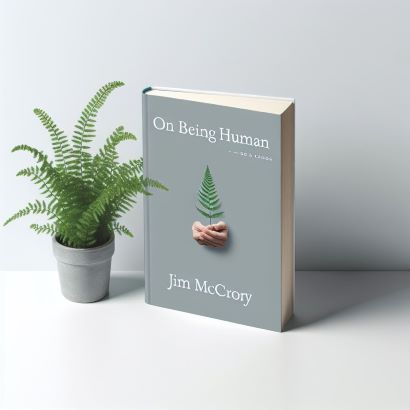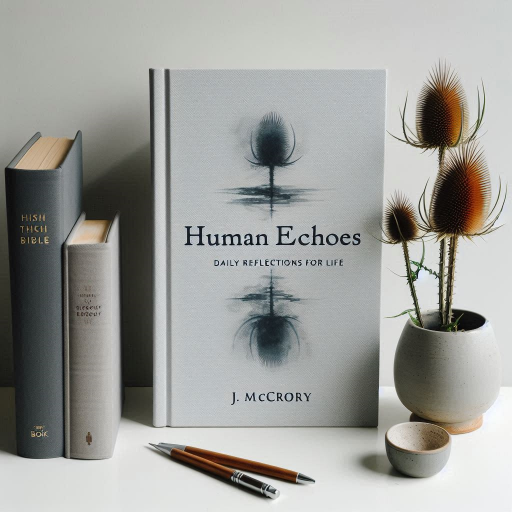"Men
have forgotten God; that's why all this has happened." Aleksandr
Solzhenitsyn
"Aim
at Heaven and you will get Earth 'thrown in': aim at Earth and you will get
neither." C.S. Lewis
"When
men choose not to believe in God, they do not thereafter believe in nothing,
they then become capable of believing in anything." G.K. Chesterton
"If
God does not exist, then everything is permissible." Dostoevsky, The
Brothers Karamazov:
"He
has shown you, O man, what is good. And what does the LORD require of you
but to act
justly, to love mercy, and to walk humbly with your God? Micah 6:8 (BSB).

Image generated with the assistance of Microsoft Copilot
What
I Fear Most
Reflect
on the quotes presented above. They serve as a solemn warning, crafted by sages
through the ages, including the divine insights from Micah. A profound fear of
mine is that many will be drawn into, and pledge their allegiance to, this
post-Christian era. Entrapped by a materialistic and atheistic spirit of the
times, this path does not promise a yellow brick road to a new age—and indeed, the
cracks on that road are there for all to see.
I see the signs all around me—religious
buildings closing, faith dismissed as outdated, and society drifting further
into a post-Christian age. We live in a world that still runs on the aroma of
Christian morality, yet fewer people recognize or acknowledge the source. What
happens when those aromas run out? What will replace the faith that shaped our
laws, our ethics, and our understanding of what it means to be human? I fear
the answer, because nothing else works.
I
was born into a world where Christianity was still the foundation of society.
It wasn’t just a private belief system but the bedrock of Western civilization.
The idea that every human being has worth—that justice, mercy, and compassion
matter—comes not from secular reason, but from the belief that we are made in
the image of God. Even those who reject Christianity still live within the
moral framework it built. But what happens when that scaffolding is removed?
The
moral and legal systems that govern much of the West have their roots in the
Bible. Take human rights, for example. They are not self-evident in nature.
Ancient empires didn’t operate on the assumption that all men were created
equal. That idea comes from Genesis. Justice, as we know it today, was shaped
by biblical principles—the Ten Commandments, Jesus’ call to love our neighbour,
and the belief that truth is objective rather than relative.
Compassion,
too, is a distinctly Christian contribution. The modern concept of charity was
not a natural development of human civilization but the result of Jesus’
teachings. Hospitals, schools, and social services largely grew out of the
church’s mission. Christianity introduced the revolutionary idea that the weak,
the poor, and the outcast mattered. It gave us a moral compass beyond
self-interest, a vision of a society where the first shall be last and the last
shall be first.
Yet,
I fear we are severing ourselves from our roots. Society wants Christian
values—justice, dignity, kindness—without Christ. But values detached from
their source wither over time.
If
Christianity declines, something will take its place. That is inevitable. G.K.
Chesterton put it well: “When men stop believing in God, they don’t believe
in nothing; they believe in anything.” And history has shown that the
substitutes for Christianity are rarely better.
Secular
humanism tries to provide a moral framework without God, but its foundation is
unstable. Morality becomes subjective, shifting with cultural trends rather
than standing firm on eternal truth. The dignity of human life is no longer a
given; it must be constantly justified. The moment it becomes inconvenient, it
is discarded.
Scientific
materialism, another replacement, reduces people to mere biological accidents.
There is no soul, no inherent purpose—just neurons firing in a meaningless
cosmos. Under this worldview, justice and morality become illusions, useful
only for social cohesion but not rooted in any ultimate truth.
Then
there are the political ideologies that rise to replace faith. The 20th century
provided grim examples of this. When societies abandon belief in a higher
power, they often turn to human messiahs—whether political leaders or radical
movements. Communism, fascism, and extreme nationalism all sought to create
utopias without God, and all led to disaster. The state became the new deity,
demanding ultimate loyalty and punishing heretics who refused to conform.
Some
turn instead to paganism or vague spirituality, but these, too, fail to provide
the structure and hope that Christianity offers. They give temporary comfort
but no lasting foundation.
Already,
we see the cracks forming. Anxiety and depression are rising, particularly
among the young. Without faith, many drift into nihilism, struggling to find
meaning in a world that tells them they are just highly evolved animals with no
destiny beyond death. There is a growing polarization in society because we
have lost a shared moral language. We see the erosion of self-sacrifice,
replaced by self-interest. Even forgiveness is fading—cancel culture is what
happens when a society forgets grace.
These
are not just random cultural shifts; they are the symptoms of a deeper
spiritual emptiness. Christianity, for all its flaws in practice, gave us a
reason to strive for goodness beyond ourselves. It gave us meaning beyond our
immediate desires. Without it, we are left with a world where morality is
fluid, where justice is whatever, the majority decides.
But
even in my fear, I have hope. History is not a straight line; it moves in
cycles. Christianity has faced decline before—during the Enlightenment, for
example—yet it revived. God is not bound by cultural trends. Faith often
flourishes in adversity. Some of the strongest Christian movements have emerged
when belief became countercultural.
Perhaps
the future of Christianity is not in grand institutions but in small, faithful
communities. Perhaps the faith will be purified by the fire of opposition,
leaving behind the nominal belief and rediscovering the radical love and truth
of the gospel.
I
fear that many will abandon Christianity. I fear what will take its place. But
I also believe that truth endures. The world may wander, but Christ remains.
And those who seek Him will find Him, even in the darkest times.
This
fear may linger in me, but I refuse to despair. Because at the heart of
Christianity is a promise—one that no cultural shift can erase: “I am with
you always, even to the end of the age.” Amen.” Matthew 28:20 (WEB).







